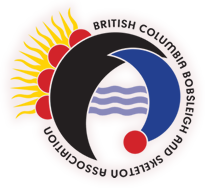Volunteer and Officials Job Descriptions
A variety of volunteers are needed for every skeleton and bobsleigh race held. Some roles require little training or certification, while others require international licensing through the FIBT. Regardless of your experience or expertise in the sports of bobsleigh and skeleton, there is always room for a helping hand. For more information please contact our officials coordinator Diana Rochon.
Start Officials
Start officials are supervised by the Chief of Start and are responsible for carrying out the required technical inspections prior to a race heat. This includes wiping and sanding runners, taking runner temperatures, clearing the start groove, monitoring ice boxing, and monitoring access to Parc Fermé.
Finish Officials
Finish officials are supervised by the Chief of Finish and are responsible for carrying out the required technical inspections and tasks following a race heat. This includes weighing athletes and sleds, recording weights,
moving scabbards, recording times and speeds, and monitoring and adjusting for outrun speeds.
Volunteer Track Crew
The Volunteer Track Crew assists paid track crew members in ensuring that ice conditions are appropriate for race day. Tasks include sweeping start grooves, clearing the track of snow or debris, and lowering and raising blinds.
Doping Escorts
Doping Escorts assist officials from the Canadian Centre for Ethics in Sport (CCES) in monitoring and escorting selected athletes to testing locations.
Race Director
The Race Director must possess an F.I.B.T. International Jury License. He is responsible for ensuring that the entire event is carried out in accordance with the F.I.B.T. International Rules. He shall ensure that skilled and responsible people hold all the important positions in order to assure the smooth progression of the event. Furthermore, he is obligated to ensure that the track is in perfect condition and that the safety of the athletes, coaches and spectators is guaranteed. (FIBT Regulations 5.5)
The Race Director is responsible for ensuring that, under the direction of the Jury, all measures are taken that are necessary for the orderly progression of the competition according to the F.I.B.T. International Rules. This includes the progression of the team captains’ meetings, the training and the race. The Race Director decides upon the use of sunshades during rain, snowfall, or sunshine. He shall inform the Jury President immediately about all decisions. (FIBT Regulations 7.2)
Race Doctor
After every crash, an athlete must present himself to the Race Doctor for an examination in order to obtain the authorization to participate further in training or in the race. The Race Doctor is responsible for the first medical aid for injuries and illnesses of the athlete, and directs the transport of injured or ill athletes for further medical treatment. (FIBT Regulations 9.1)
Jury Members, Jury President and Technical Delegates
The Jury Members and Technical Delegates, appointed by the F.I.B.T. Executive Committee, must possess an F.I.B.T. International Jury License in order to officiate. This License can be acquired after taking an examination on the F.I.B.T. International Rules for Bobsleigh and Skeleton. (FIBT Regulations 6.1)
Only active National level officials who display a high level of competency are recommended to BCS for nomination to take the FIBT exam. The FIBT requires the national federation (BCS) to nominate candidates.
The Jury is the highest authority of the competition in question and exercises control with the right to make final judgments within the scope of the F.I.B.T. International Rules. The decision of the Jury is final, incontestable and takes effect immediately. Furthermore, the Jury is responsible for: (FIBT Regulations 6.3.1)
- potential changes of the ice temperature
- any change of sleds
- any change of runners
- any repetition of a heat
- any reduction in the number of training runs
- any interruption or cessation of the race, after consultation with the Race Director and the Chief of Track
- any reduction in the number of participants
- any penalties for rule violations
- the length of the start grooves
- the number of pilot sleds
- the temperature and weight checks
- decisions regarding protests
- any suspension of athletes
- closing the track in case of danger







